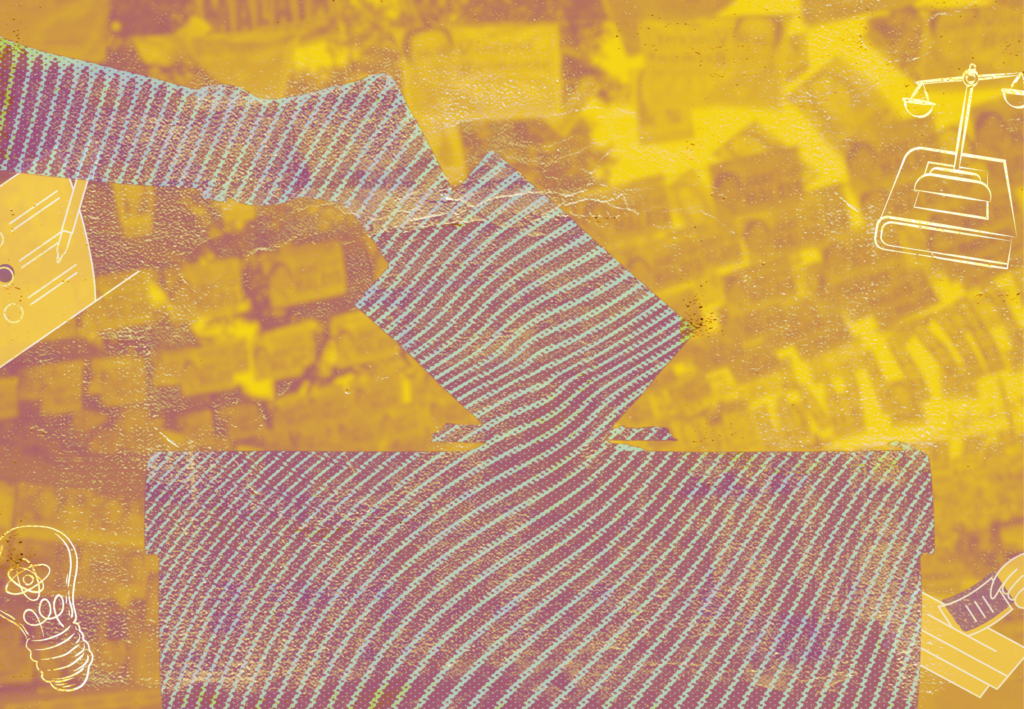Few reports help the public stay informed during campaign season

CHEERS TO the few reports that exemplify the role of journalism in informing the public about the rules and regulations governing elections, including voters’ rights. As the campaign season goes into full swing, these reports called public attention away from the obvious spectacle of campaign rallies–the self-promotion of candidates, including political mudslinging. Taking a different path, the articles provided basic information and knowledge about the political process, including the very visible political campaign.
Lourd de Veyra in TV5’s Frontline Pilipinas detailed the guidelines for political advertisements, highlighting distinctions across print, radio, television, and online platforms. By comparing political advertising practices in the Philippines with those in the United States, de Veyra offered viewers a broader perspective on how different democracies regulate campaign promotions. This comparative approach not only informed the public about local policies but also encouraged critical thinking about how electoral campaigns operate on a global scale.
Similarly, Jonathan Andal in GMA-7’s 24 Oras outlined the dos and don’ts of campaign materials. By contrasting Philippine regulations with those in Japan, Andal presented a nuanced discussion on how different nations enforce election guidelines. These reports go beyond just stating the rules; instead offer context and perspective, helping voters understand why these regulations exist and how they contribute to fair elections.
Beyond campaign paraphernalia, NewsWatch Plus and Inquirer.net presented general information essential for voters during the campaign period. Menchu Macapagal of NewsWatch Plus conducted an in-studio interview with election lawyer Al Agra, discussing critical aspects of the electoral process such as vote-buying and election offenses, including when candidates give food during their rallies. Meanwhile, Kurt Dela Peña of Inquirer.net wrote a comprehensive guide detailing key dates, regulations, and guidelines for the 2025 campaign.
The Commission on Elections (Comelec) has set specific timeframes to ensure a level playing field, reinforcing the importance of compliance with established election laws. In addition to time constraints, Comelec has issued strict guidelines regarding the placement and use of campaign materials. Unauthorized postings on public property or the use of government resources for campaign activities are violations that can result in penalties, including the removal of materials and potential legal consequences for candidates who fail to comply.
As election laws can be complex, these reports simplify legal details, preventing misinformation and ignorance about campaign rules.
These reports exemplify the role of the press as a watchdog, but also as an aid for the public, preparing them to understand how candidates violate the rules and resort to vote-buying and illegal propaganda. Citizens must be able to evaluate the candidates and the conduct of the campaign which indicates the candidates’ worthiness of the vote. Citizens then can hold candidates accountable, fostering transparency and credibility in the electoral process. How they observe the rules and regulations is a significant indicator of their future conduct in public office. But citizens would not be able to do this without knowledge of the laws themselves.
As misinformation rises to mislead and confuse the public, journalism must rise to spread even the basics so the public can stand on their own, making their vote an act of discernment and understanding.
Leave a Reply